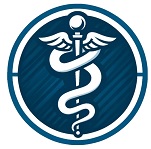Some medical schools may be easier than others to enter; for example, Pacific Northwest University College of Osteopathic Medicine (PNWU-COM) stands out due to its focus on rural and medically underserved communities, and preference for in-state applicants.
However, it’s essential that your school list be comprised of more than just acceptance rates alone. Consider these factors when compiling your list:
1. High MCAT Scores
Not having top MCAT and GPA scores can make applying to medical school more daunting, yet some students may hesitate to submit applications to medical schools that don’t require such high scores despite them often being easier to get into than their first choice medical schools. These medical schools can serve as safety nets if an applicant doesn’t gain entrance at their first choice school.
Student looking to maximize their chances of admission should compare their metrics against the averages for their target med schools, which should be available online. For instance, Rosalind Franklin recommends an MCAT score in the 75th percentile – that would mean 524 or above on the exam – when applying. Individuals with lower MCAT and GPA scores should retake both exams.
2. Excellent GPA
GPA is one of the primary metrics used by medical programs when considering admissions statistics; however, it should not be treated as the only deciding factor.
Medical schools require applicants to present exceptional grades, especially in science classes, and strong letters of recommendation from previous instructors, which help them understand your academic strengths and work ethic more easily.
Many medical schools have minimum application requirements to reduce workload of admissions committee and make the application process simpler for everyone involved. Furthermore, certain schools offer lower tuition costs for in-state students which can make attending more competitive schools more affordable; but it should be remembered that higher GPA doesn’t guarantee acceptance into any medical school.
3. Extracurricular Activities
If you are blessed with an outstanding GPA and MCAT score, another way to increase your chances of acceptance to medical school would be participating in meaningful extracurricular activities. Medical schools look for applicants who exhibit well-roundedness; interviewers will ask about these experiences during interviews.
Make sure your extracurricular participation is significant and has been sustained for an extended period. A single week spent volunteering for Habitat for Humanity might not seem impressive enough.
Be mindful when selecting activities to highlight on your application and find mentors that will provide strong letters of recommendation on your behalf. A single weak recommendation could ruin your chances of admission into medical school; aim for variety by including research, clinical experience, volunteering opportunities and leadership in your list.
4. Work Experience
Medical school can be an immense amount of work and demands a great commitment to academic success. Non-academic experience may make the entire process more manageable if your GPA or MCAT score falls short of ideal standards.
Experience working as a nurse or in the emergency room can demonstrate your dedication to medicine, helping admissions officers assess whether you possess the required character traits for this career path. Volunteer work or community service projects may also show admissions officers your dedication and compassion towards others.
Notably, applicants seeking work experience must ensure they do it primarily for personal enrichment rather than as a tool to aid medical school applications. This ensures admissions officers can properly evaluate its relevance.
5. Community Service
Medical school can be both expensive and time consuming, making the selection of schools that fits with your career goals critical. Being aware of how they screen applicants is also useful; knowing this allows you to tailor your application.
University of Louisville medical school receives fewer applications than similar schools; however, due to its emphasis on community service and rural healthcare provision. As such, admission may be easier.
As a rule, any volunteer activity that provides significant benefits to the local community is accepted as community service for medical school applications. Students may even travel overseas as part of their community service experience – for instance traveling with Habitat for Humanity to Puerto Rico to improve living conditions there may count.
